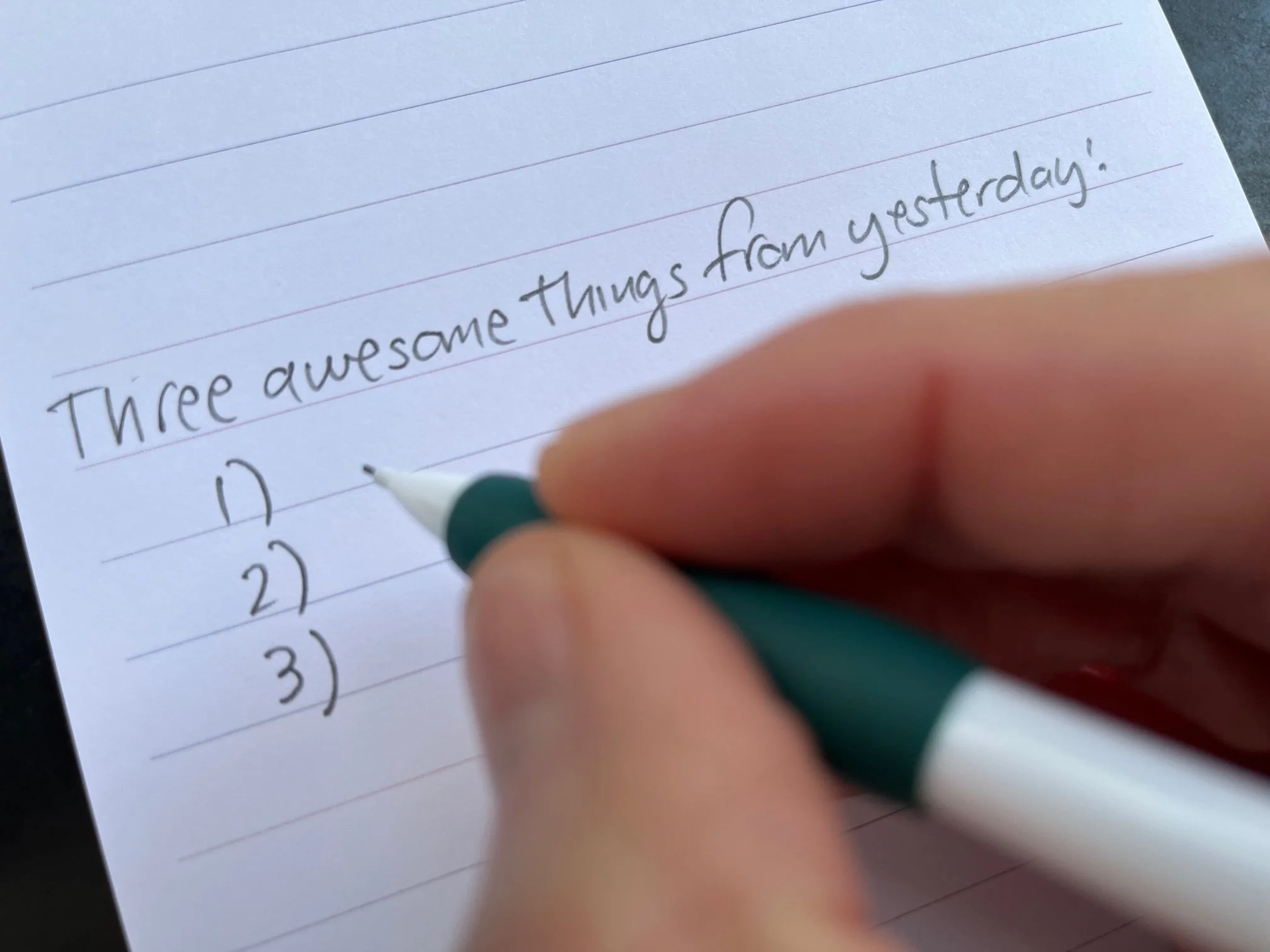Some Easy Choices to Become Just a Little Better. Oh, and One Hard One
Yes, there are thousands of articles offering the best, latest, or sure-fire researched-based approaches to developing, growing, and improving yourself. And because you’re reading this, you’ve probably read a lot of them. While this article won’t be so bold as to propose a sure-fire approach to growth, one thing is certain: doing nothing leads to nothing. So this valiant attempt is less focused on a comprehensive approach to self-development and mostly focused on a single ingredient: choosing to do; choosing to do “not nothing.”
Let’s start with this: what we choose to do not only reflects who we are, it is a signal of who we want to be. Yet each day the choices can be overwhelming–some estimates claim as many as 35,000.* While that number sounds a bit absurd, there are some days it can feel pretty accurate. Adding to the challenge of decision overload is that some behavior choices aren’t really choices, at least not conscious ones. We call these habits. And–more striking data–approximately 40%* of our behavior is habitual.
But whether the choice is conscious or habitual, most experts who study these things agree on one starting point for change: recognizing the behavior. Then making a choice to change. In Atomic Habits, author James Clear proposes a starting point for behavior change: 1) Decide the type of person you want to be. 2) Prove it to yourself with small wins. The obstacle for many is not the first part, but the second: the action. Inertia is powerful and the tide working against any change is the amount of choices available (remember those 35,000 choices?). The solution? Actively picking something.
Oliver Burkeman makes a strong argument about the power of picking things. In his book Four Thousand Weeks, he makes this simple proposition: we can’t do it all. So stop trying. Make choices that indicate “who” we aspire to (recall Clear’s first step).
As you consider what you want to be–the person you seek to become–what do you choose? I say, choose easy. Choose easy behaviors that can become habits or conscious choices that ignite even small growth. Need some ideas?
Watch something that makes you smile, laugh or feel inspired. Once you find it, share it. These make me laugh.
Don’t Worry Be Happy (Smile)
The Rainbow Connection (Inspired)
Abracadabra, Bugs Bunny (Laugh and laugh more)
Meditate–or contemplate (but don’t ruminate)--for two minutes
Reflection with a dash of “what can I do better next time?” is a powerful habit that creates learning. You don’t need 30-minutes of focused silence. Just a couple minutes of quiet thoughtfulness can yield insights.
Go for a walk
Five minutes of simply walking without technology (that means no phone!). Be open to awe. Be curious and observe the everyday beauty around you. Allow yourself to daydream–or as Einstein called it, “thought experiments.” You’ll learn something or see a problem from a different perspective.*
Perform a random act of kindness
Yes, I know it’s harder nowadays, but when you do it, it makes an impact on you and them. Kindness creates more kindness.*
Call a friend and express gratitude
Yes, call. Don’t text. Can’t think of what to thank them for? How about just thanking them for answering your call. Who does that?
Acknowledge the positive from yesterday
Write three things you did yesterday that made a difference, no matter how small. Write them somewhere you will see them the next day to trigger the list for your new day.
Ask for advice
Each day, pick one person who knows something you don’t and ask, “How do you do that?” Curiosity is a powerful force.
And now the hard thing:
Do something. Do any one of the above or something else. Just get started. The good news is that you can try one thing and if it doesn’t feel right, try another. We most often regret the things we didn’t do, not the things we did (paraphrasing Mark Twain).
My guarantee? If you practice any number of these, your day will be better than if you didn’t. And if it isn’t, then you can write the next article. Just cite your sources.
* Notes:
Duke University study on Habits
Some people have improved cognition while on a walk
Random Act of Kindness Calendar
Find more insights on the Forty-Two Consulting “Thinking Out Loud” blog.
Find more Thought starters and join the Forty-Two Community.

